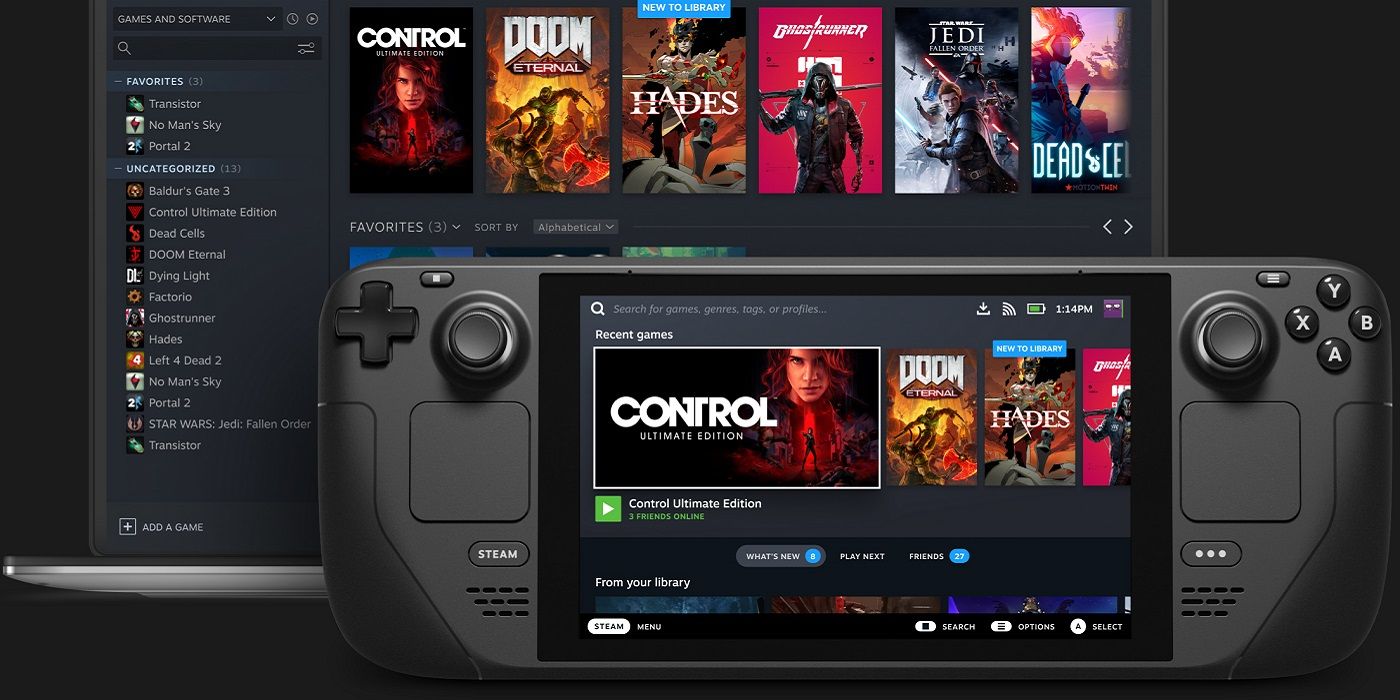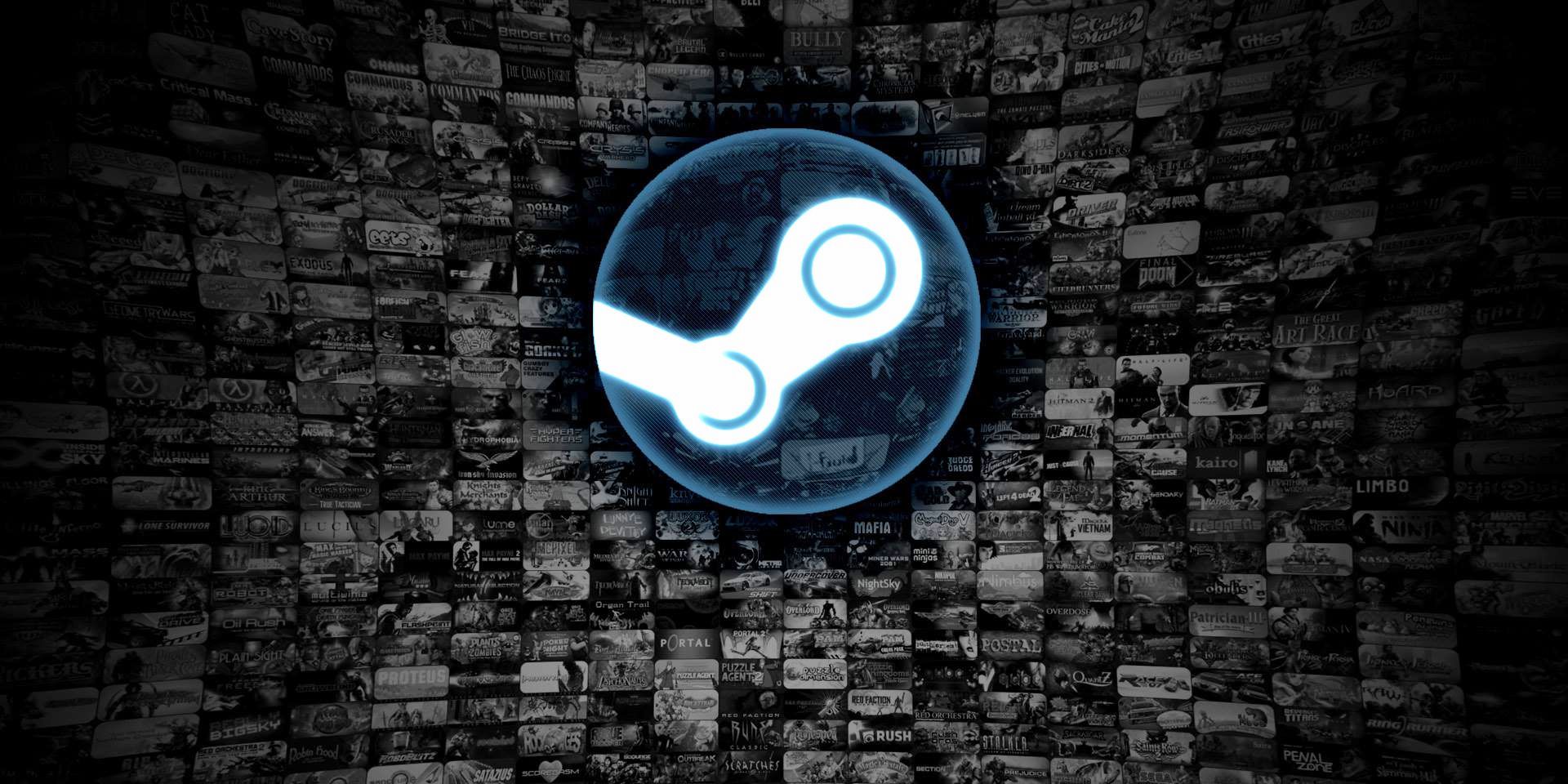
Valve has announced the Steam Deck, a portable game console starting at $399 modeled after Nintendo's Switch that links into the existing Steam store to support thousands of PC titles, and orders beginning shipping in December. Valve has previously entered the hardware market with Steam Machines, Linux computers that ran a dedicated Steam OS, and supported specialized controllers with trackpads also branded after the service. It's also spent years integrating controller support hooks into PC games that otherwise wouldn't support the feature, allowing keyboard and mouse-centric games to allow gamepad inputs at the push of a button. Accordingly, the Steam Deck seems like the logical conclusion of these earlier efforts.
Valve has come a long way from its days as a game developer partnering with publishers for the release of Half-Life. Launching Steam back in 2003 and requiring that players purchasing Half-Life 2 download it, the service has become the de facto way to access a vast majority of the PC gaming library. Users now accumulate huge libraries of digital titles via frequent Steam sales and take advantage of backend community features that go beyond simply keeping games updated. This has kept many tied to the ecosystem even when competitors like the Epic Games Store launched, a fact that could be rewarded now that Valve's portable hardware ambitions have been revealed.
As detailed on the portable's official website, the Steam Deck is a fully functional portable PC that runs everything that a desktop could on the go. Valve uses Star Wars Jedi: Fallen Order as an example of a cutting-edge game that players can now play portably on Steam Deck if they own it on Steam. The device supports traditional controller buttons, as well as a pair of trackpads and a touchscreen for more PC-centric actions. It also has four back buttons to map out more complicated controls, which will likely come in handy for MMOs, strategy games, and other titles. Using an official dock (sold separately), the Steam Deck can also hook up to a TV, and the console's Bluetooth and USB ports mean that players can use gamepads they already own during docked play.
Speaking with IGN, Valve head Gabe Newell said that the Steam Deck's price point of $399 was vital to the hardware's success, but it was also a tough nut to crack. "We knew that the price point was very important, so [...] from the beginning, we designed with that in mind, and we worked very, very hard to achieve the price point that we're at." The work seemingly paid off, as the console boasts an impressive 16GB of RAM and an AMD CPU that rivals and surpasses anything out there in the handheld space.
IGN's preview coverage of the device also reveals that the Steam Deck is not a locked-down device, meaning that it can run other PC operating systems with ease. In gaming alone, this opens up lots of possibilities. With the right software, the Steam Deck could easily run games exclusive to the Epic Games Store and retro titles that lack rereleases through emulation. It's unclear how the device's controls would map to this secondary support, but it's still an exciting prospect all on its own.

The Steam Deck feels like the kind of announcement that Valve fans have been waiting for. It puts the PC-first company right in the middle of the fluctuating video game marketplace and directly in competition with Nintendo for the first time. It brings PC gaming even more into the mainstream without sacrificing the scope that makes it such an enticing platform. Best of all, it brings a huge library of existing titles into the future via portable and TV play. Valve's hardware efforts may have been less than stellar in the past, but initial impressions of the Steam Deck feel like a slam dunk waiting to happen.
from ScreenRant - Feed https://ift.tt/3emHsHs


0 Comments